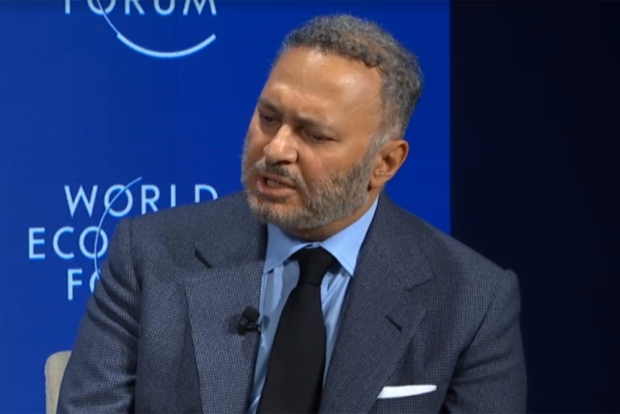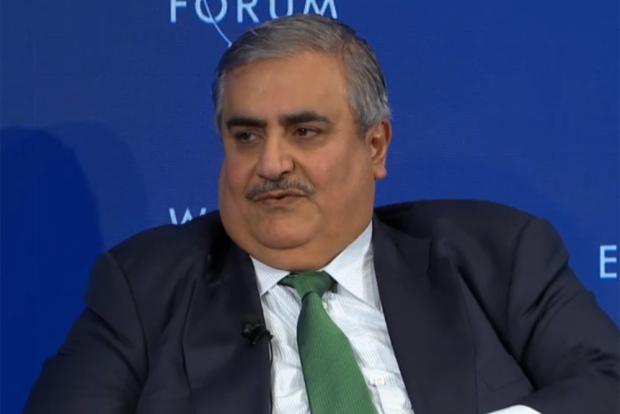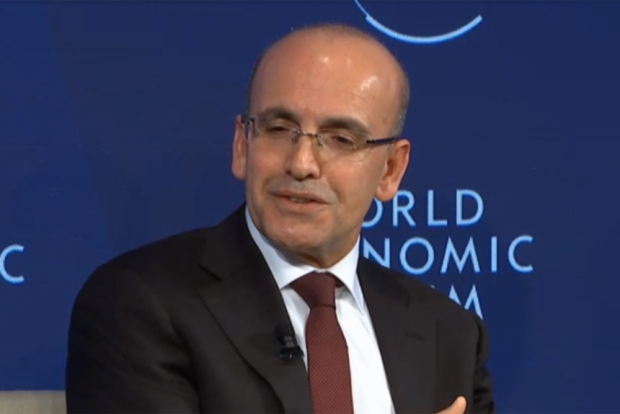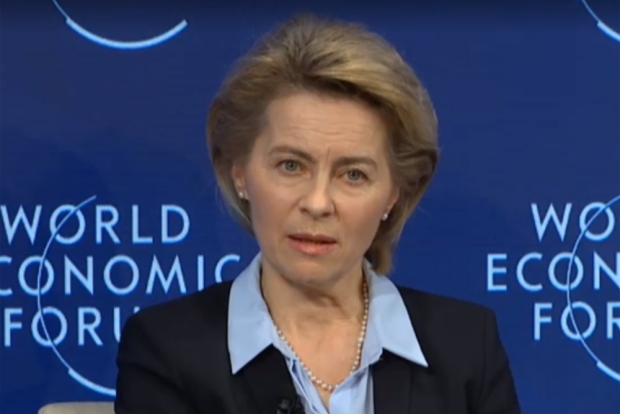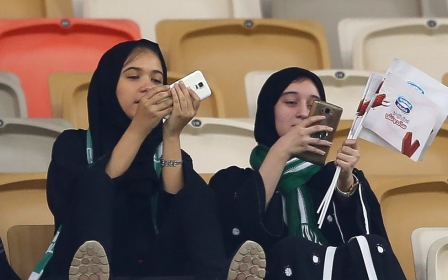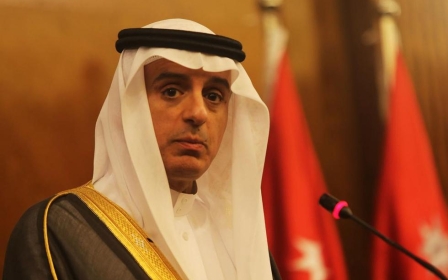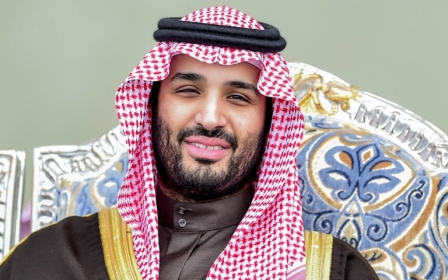Saudi Arabia is the light and Iran is darkness, says foreign minister
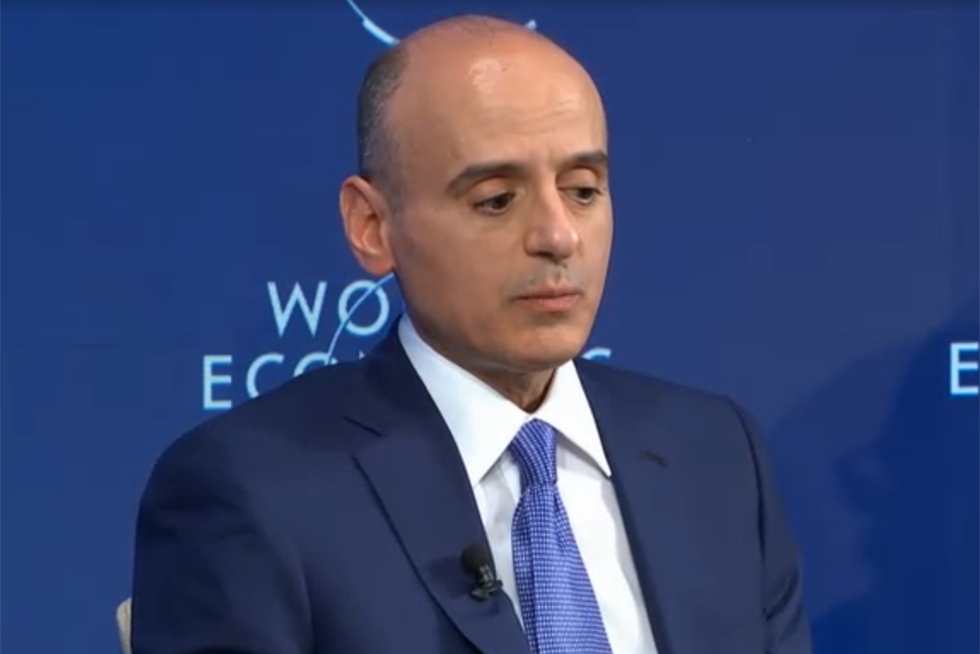
Saudi Arabia and its allies on Wednesday reiterated that Iran is the preeminent threat to the Middle East and said only by Tehran becoming a "normal state" can the region hope to step out of the "darkness" into a prosperous and peaceful future.
At a session at the 2018 Davos World Economic Forum, the Saudi foreign minister, Adel al-Jubeir, said the Islamic Republic must end its commitment to sectarian conflict and its attempts to "restore an empire that was destroyed thousands of years ago", and that a rapidly changing Saudi Arabia was a beacon of light compared to the darkness emanating from Iran.
"In the Middle East we have a vision of light and a vision of darkness," he said of Saudi Arabia and Iran. "Light prevails over darkness."
We sat for 35 years and tried to engage and all we got was death and destruction.
- Adel al-Jubeir, Saudi foreign minister
Jubeir was joined at the talk in Switzerland titled "Finding a New Equilibrium in the Middle East" by his counterparts from the UAE and Bahrain, Anwar Gargash and Khalid bin Ahmed al-Khalifa; Mehmet Simsek, a deputy prime minister in Turkey, and Ursula von der Leyen, the German defence minister. Iran was not represented.
In his opening comments, Jubeir said the region must counter Iran to find a peaceful future, and defended Saudi Arabia's aggressive foreign policy in Yemen, Syria and beyond.
"The 1979 revolution [in Iran] launched a sectarian wave that provoked a Sunni reaction. Khomenei exported that revolution, it is enshrined in their constitution. They believe every Shia belongs to Iran, and this is not acceptable.
"They had no problem setting up terror groups, like Houthis in Yemen and Hezbollah. They have no problem committing terrorist acts in Europe and South America.
"We sat for 35 years and tried to engage and all we got was death and destruction. In Yemen we responded to a coup by the Houthis, which destroyed Yemen's path to normalisation and we are preventing the takeover of Yemen by an Iranian proxy. We are working with our allies to push back."
He said criticism of Saudi Arabia's response was unjustified.
"People have told us in the past we need to step up. When we do, the very same people say 'why are we being reckless?'," he said. "I used to hear people say Saudis want to hold coattails while others go into battle. When we lead when there is a vacuum, people are stunned and say we are being reckless.
"No, we are leading. If you want us to lead, support us. If you want us to support, you lead."
Saudi social change
Jubeir defended the rapid changes in Saudi Arabia effected by the crown prince Mohammed bin Salman, saying they the second step necessary to finding a peaceful, prosperous future.
"People are not used to Saudi Arabia moving quickly and boldly," he said. "Our people have hopes, dreams and ambitions and they don't want to wait 20 years. You have to have a fundamental transformation - we must open public discussion, deal with corruption, and attract investments.
"People criticise Saudi Arabia for moving too slowly, now it is moving fast. Mohammed bin Salman wants to turn our country into a strong country, empower its youth and women, and make the country an example to the region, and take our rightful place among strong and dynamic countries."
Responding to a question about women's rights, he added: "In 1960 we had no schools for women. Today 55 percent of college students are women. Today some of our most prominent businesspeople are women. Women can vote. Opportunities are opening up. The ban on driving is lifted, and restrictions on entertainment have been lifted.
Iranian people want opportunity and jobs - that is not advice from us, it is from their own people
- Anwar Gargash, UAE foreign minister
"Our country cannot move forward if we only avail ourselves of 50 percent of the population. We want to increase the participation of women in the workforce. This is something we are trying to change, by opening up the public space."
Jubeir's comments on Iran were echoed by Gargash: "Iranian people want opportunity and jobs. That is the clear message they [Iran's leaders] should focus on - that is not advice from us, it is from their own people. They should not be spending billions on [fighting in] Syria."
Gargash added that protests in Iran over the new year were "the time for Iran to analyse what it is doing for its own stability's sake".
"The sort of disturbances, that were countrywide, were an opportunity for them to understand they need to be a normal country.
"I am hoping in the next few months that the anger seen on the streets is not in vain, that this is an opportunity to recalibrate and understand that an aggressive foreign policy in Arab space undermines stability in those states and Iran."
Khalifa, Bahrain's foreign minister, said the faultline of extremism ran through the "Islamic Republic", making the distinction between the leadership and the Iranian people, before then criticising Iran in name for "exporting revolution".
"Iran needs to change its behaviour - we are not there to destroy Iran, they need to change their behaviour and be part of a coalition. When they stop exporting the revolution - it is not respectful to that revolution - then we will be on firmer ground to talk to Iran. We need to talk direct."
He said that the United States could "turn on a dime" its Middle East policy, but was nevertheless a key player in the region and Bahrain, which hosts the US navy's fifth fleet, would continue as a key ally. "America's presence, commitment and partnership has been there for decades. America partnership is vital and it will continue," he said.
Turkey's role in the Middle East
However, Simsek, the Turkish representative on the panel, said US policy was exacerbating threats to Turkish national security, and singled out its alliance with the Kurdish YPG militia in Syria.
Turkey views the YPG as part of the PKK, a Kurdish group it has fought for decades, and on Saturday launched an invasion of the Syrian Kurd canton of Afrin to clear it if YPG fighters.
"Sometimes we find it hard, what our friends are up to," he said. "There are inconsistencies about communication and what they do on the ground.
"The US has opted to choose one terror organisation to fight another terror organisation. There is a dialogue of death. We would like recognition of these concerns.
"Of course IS is a threat to humanity - that is why we moved in to Syria [to help] cleanse it of IS.
"Support for the YPG, clearly a subsidiary of PKK, is a national security threat for us. The US tells us [their alliance] is short term and tactical, but it is not the right strategy."
Simsek was evasive on a question about the basing of Turkish troops in Qatar, which is being blockaded by a Saudi-led coalition which accuses it of supporting terrorists and Iran.
"Turkish troops in Qatar are limited on a scale, based on a limitation by Qatar - it is not against another nation.
Turkish troops in Qatar are limited on a scale, based on a limitation by Qatar - it is not against another nation
- Mehmet Simsek, Turkish deputy prime minister for economy
"We have always played a constructive role in Nato, we have troops in Afghanistan to help the US. We are in Somalia, we were in Lebanon as part of peacekeeping. Turkey is in many parts of the world, it is one of the largest players in Nato. In Qatar it is on a limited scale.
"We support Kuwait's mediation in the dispute. Dialogue is key. GCC countries are a family and they will address the dispute."
Returning to the issue of Iran, Von der Leyen, the German defence minister, said the international deal limiting Tehran's nuclear ambitions was key, but not the only issue that needed addressing.
"We see a lot of problems in Iran, without question," she said. "We should stick with the nuclear deal if it sticks to the deal.
"But this does not exclude other problems we have to discuss - its growing influence in Iraq and Syria, is one more good argument for a European voice being heard in the region.
"Yes, we see the problem but we must stick with the Iran deal, it is better to be in dialogue as hard as it might be."
She said the only way to solve the problems of the Middle East was through the United Nations.
"If we want to solve problems and come to a new equilibrium, it can only be under the umbrella of the UN - there are so many different interests and there is only one place where people have to stick to the rules," she said.
New MEE newsletter: Jerusalem Dispatch
Sign up to get the latest insights and analysis on Israel-Palestine, alongside Turkey Unpacked and other MEE newsletters
Middle East Eye delivers independent and unrivalled coverage and analysis of the Middle East, North Africa and beyond. To learn more about republishing this content and the associated fees, please fill out this form. More about MEE can be found here.


